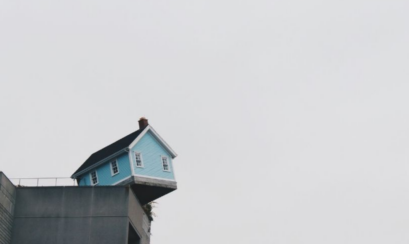Police tasked with enforcing social distancing and self-isolation measures
Police in New South Wales now have the power to fine people who disobey the social distancing rules and other measures introduced to stem the spread of COVID-19 (coronavirus).
The power to enforce these ministerial orders comes from amendments made to the NSW Public Health Act 2010.
In summary, police can issue Penalty Infringement Notices (PINs) of $1,000.00 for individuals and $5,000.00 for corporations. These are in addition to existing enforcement powers that allow police to issue court attendance notices for offences with maximum penalties of fines of up to $11,000.00 and/or six months in gaol.
The amendments to the Public Health Act give police the power to issue on-the-spot fines to people or companies for breaching the social distancing and self-isolation rules, or for attending or organising a gathering of more than ten people, including parties in someone’s home. [Editor’s note: Immediately after this article was published, the federal government announced a further tightening of restrictions, limiting gatherings to two people.]
Weddings are limited to a total of five people and funerals to ten.
Initially it was announced that there would be a 30-minute limit on time spent at a hairdresser, but this rule has since been relaxed.
Police will also charge and prosecute anyone found to be profiteering from the onselling of essential items such as toilet paper, baby formula, hand sanitiser and medicines.
Additional police on patrol to enforce new measures
The NSW Police Commissioner Mick Fuller has announced there will be more police on patrol to enforce these measures, including police at shop checkouts to ensure public order is maintained.
Police in other states have also been enforcing state border travel restrictions and checking on people who are self-isolating.
Anecdotally police are gearing up for an increase in domestic violence offences, as well as theft and fraud-related offences.
Rising unemployment due to the closure of businesses may force some people to steal items of food or money to meet their daily needs.
Police can charge people for intentionally spreading coronavirus
Police could charge people for intentionally causing the spread of coronavirus. This is similar to other offences relating to the intentional transmission of other communicable diseases, most notably HIV-AIDS.
Section 79 of the Public Health Act relates to duties of persons in relation to sexually transmissible diseases or conditions:
A person who knows that he or she has a notifiable disease, or a scheduled medical condition, that is sexually transmissible is required to take reasonable precautions against spreading the disease or condition.
A notifiable disease or scheduled medical condition includes avian influenza, SARS, MERS and Novel Coronavirus 2019 (COVID-19). Penalties for this offence include a fine of up to $1,100.00 and/or six months in gaol.
In more serious instances police could also charge someone under section 33 of the Crimes Act 1900, where a person causes grievous bodily harm with intent to another person. The maximum penalty for this offence is up to 25 years in gaol.
Grievous bodily harm includes inflicting a grievous bodily disease. It would be open to the court to determine in the circumstances whether COVID-19 fitted this definition.
Police warn of emergence of coronavirus scams
Police have warned about a new risk posed by coronavirus scammers, both in person and online.
Overseas there have been reports of scammers pretending to be from the local council, health workers or members of a charity going door to door and being invited inside and stealing property or asking for donations. The elderly especially have been targeted.
As well there have been reports of online scams from fraudulent charities asking for donations, a fake coronavirus e-newsletter and scams targeting people working from home.
Police have reminded everyone to be extra vigilant to these scams. (Please see Coronavirus scams to watch out for to read an overview of scams doing the rounds in the UK and Current COVID-19 (coronavirus) scams for information for Australia from the ACCC.)
What to do if you receive a penalty infringement notice for breaching a public health order
Police have the power to stop you and question you if they have a reasonable suspicion that you may have broken the law.
You are bound to give them your name and address, but you don’t have to say anything that may incriminate you. They can search you if they believe you may have something on you that is stolen or is illegal.
If they determine you have breached the public health orders, they will issue you with a penalty infringement notice. You can deal with it either by paying the fine before the due date, or by taking it to court and either pleading guilty with an explanation, or pleading not guilty and having the matter go to a defended hearing.
Be aware, though, that if you plead not guilty, defended hearings are not being listed in the Local Court for the foreseeable future – so it could be a long time before you get your day in court.
If you are fined or want to take your matter to court, contact us for advice.
Not leaving home without a reasonable excuse
Further updates to the NSW Public Health Act were passed on 31 March 2020. These are contained in the Public Health (COVID-19 Restrictions on Gathering and Movement) Order 2020.
The amendments relate to not leaving home without a reasonable excuse. People are to stay at home unless they have a reasonable excuse, which includes for work if it is impossible to work from home, education, shopping for essentials, attending medical appointments and exercising.
A reasonable excuse also includes contact between parents and children or siblings.
There continues to be a limit of two people in a gathering outside, unless the people are members of the same household. Social distancing must be observed at all times.
Ban on public property auctions and open inspections
Real estate agents are affected by the new laws, due to the ban on open inspections of premises which are available for sale or lease. One prospective buyer or tenant at a time can still be shown through a property.
There is also a ban on conducting property auctions where prospective buyers attend in person. A number of real estate agents have adapted to this change by conducting property auctions online.
A weekend in the country is not a reasonable excuse
The amendments state explicitly that taking a holiday in a regional area is not a reasonable excuse for leaving home, which will curtail travel plans typically made for long weekends.
As Easter approaches at the time of writing, we anticipate that there may be people who are reluctant to abandon plans to travel over the long weekend and stay with friends. Some may be tempted to ignore the restrictions.
We anticipate that the police will be out in force over Easter, checking where people are going and their need for travel. This may result in a degree of tension.
For more information please see Coronavirus and the machinery of government – how do governments enforce the restrictions they impose?















